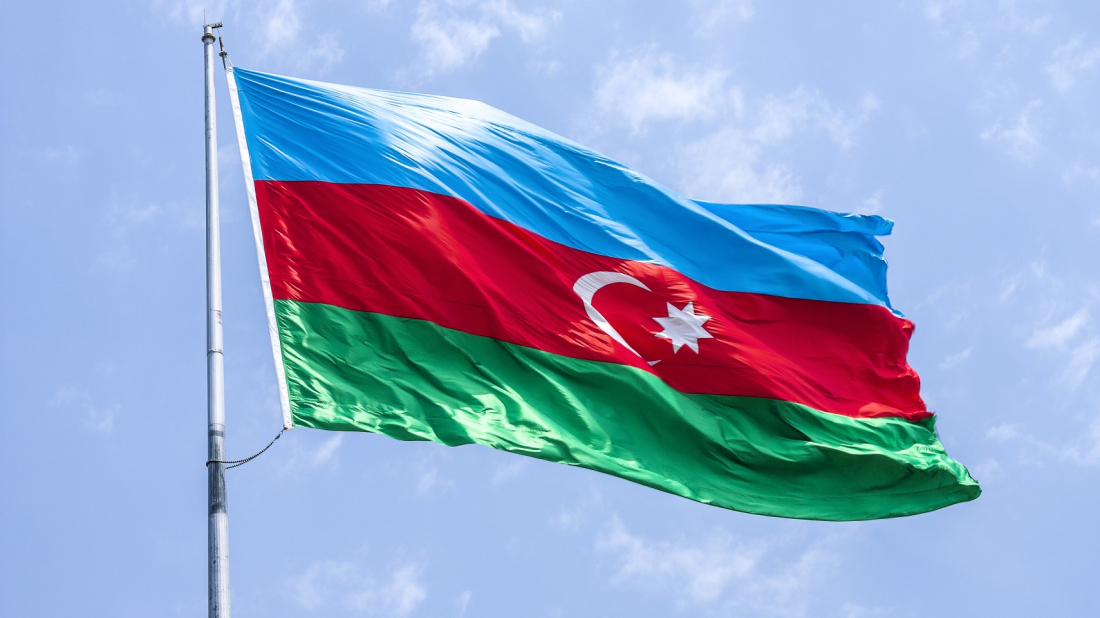Zelenskyy rejects FT’s May 2026 election report, cites need for ceasefire
Ukrainian President Volodymyr Zelenskyy said on Wednesday (11 February) that his government will only hold national elections once a ceasefire with Ru...

Amid the threat of civil war and national collapse, Azerbaijan turned to its most experienced statesman, Heydar Aliyev, whose return to power on June 15, 1993, marked the beginning of the country's political revival.
Azerbaijan declared its independence in October 1991, following the dissolution of the Soviet Union. However, the early years of sovereignty were overshadowed by internal turmoil, weak governance, and the deepening conflict in Karabakh. The country entered a period marked by economic collapse, social unrest, and an absence of strong leadership. Public institutions were either dysfunctional or paralysed, and lawlessness pervaded daily life.
In this environment of uncertainty, the Azerbaijani Armed Forces were also in disarray. Poor organisation, lack of discipline, and a dramatic increase in desertions left the country vulnerable on the battlefield. Armenian forces took advantage of this weakness, escalating their occupation of Azerbaijani territories. The nation’s territorial integrity was at serious risk, and with no effective command at the helm, Azerbaijan appeared directionless.
The situation deteriorated further in the political arena. Competing factions and political groups engaged in a power struggle, each vying for control of the fragile state. On May 14, 1992, the Azerbaijani Popular Front seized power, but their governance lacked vision, consistency, and administrative capability. Within a short time, it became evident that the new leadership could not manage the multiple crises engulfing the nation.
By mid-1993, Azerbaijan stood at the edge of civil war. Regional uprisings, military disobedience, and threats of separatism raised the spectre of national disintegration.
In this critical moment, public attention turned to Heydar Aliyev, a seasoned leader with decades of experience in governance. Then serving as the Chairman of the Supreme Assembly of the Nakhchivan Autonomous Republic, Aliyev was seen as the only figure capable of restoring order and preventing the collapse of the state. Responding to the urgent appeals of both citizens and state officials, he arrived in Baku on June 19, 1993.
Aliyev's return to the capital signalled a shift toward stability. On June 15, 1993, just days before his formal arrival in Baku, he was elected Chairman of the Supreme Soviet of the Republic of Azerbaijan. This moment marked the beginning of a new political chapter — one defined by state-building, legal order, and national unity. The date would later be enshrined in Azerbaijan’s collective memory as National Salvation Day, symbolising the country's rescue from internal collapse and external threat.
With his return to national leadership, Heydar Aliyev took decisive steps to halt the chaos. He established control over key state institutions, initiated political dialogue with opposition forces, and worked to restore the army’s operational capacity. His leadership brought an end to the immediate threat of civil war and laid the groundwork for political stability.
In the following months, Aliyev assumed the presidency and launched a comprehensive process of state-building. Under his leadership, Azerbaijan adopted a new Constitution in 1995, established functioning democratic institutions, and took steps toward economic reform and international cooperation. The foundations of a modern Azerbaijani state were thus laid in the wake of National Salvation Day.
Recognising the critical importance of this turning point, the Milli Majlis (National Assembly) officially declared June 15 a national holiday in 1997. It is observed annually as a day of remembrance, pride, and national unity, a time to reflect on the challenges Azerbaijan overcame and to honour the leadership that saved the country from disintegration.
The United States and Azerbaijan signed a strategic partnership in Baku on Tuesday (10 February) encompassing economic and security cooperation as Washington seeks to expand its influence in a region where Russia was once the main power broker.
Greek Prime Minister Kyriakos Mitsotakis arrived in Ankara on Wednesday, where Turkish President Recep Tayyip Erdoğan held an official welcoming ceremony at the Presidential Palace, marking the start of high-level talks between the two NATO allies.
Europe heads into the Munich Security Conference, 13 February, amid deepening unease over U.S. policy, as President Donald Trump’s hard-line stance on defence, trade and territory fuels doubts about Washington’s long-term commitment to transatlantic security.
The European Union is preparing a further expansion of its sanctions against Russia, with Central Asia emerging for the first time as a distinct point of focus.
A senior adviser to Iran’s Supreme Leader said on Tuesday that negotiations with the United States must remain focused on the nuclear issue and be grounded in realism, as Washington and Tehran prepare to resume talks mediated by Oman.
Stalled U.S.–Iran talks and mounting regional tensions are exposing a growing strategic rift between Washington and Tel Aviv over how to confront Tehran, political analyst James M. Dorsey says, exposing stark differences in approach at a critical moment.
A Republican lawmaker accused on Wednesday (11 February) Attorney General Pam Bondi of concealing the names of Jeffrey Epstein’s powerful associates. The claim was made during a heated House hearing on the Justice Department’s handling of the files.
Start your day informed with AnewZ Morning Brief: here are the top news stories for the 12th of February, covering the latest developments you need to know.
The Ukrainian capital came under a “massive” Russian missile attack early Thursday (12 February), with explosions heard across the capital according to authorities. The assault unfolded as uncertainty lingers over upcoming U.S.-brokered peace talks.
The U.S. House of Representatives narrowly backed a measure on Wednesday (11 February) disapproving President Donald Trump's tariffs on Canada, a rare rebuke of the president and leaders of his party in the Republican-majority House.
You can download the AnewZ application from Play Store and the App Store.

What is your opinion on this topic?
Leave the first comment